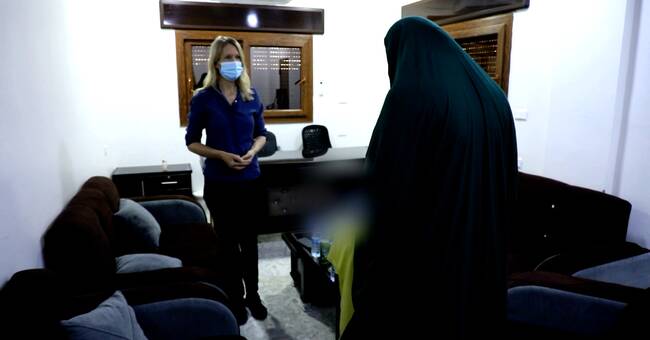A sea of tents is spreading in the Roj concentration camp in northeastern Syria.
Most stay in the scorching heat, but we hear children shouting in English, French and Arabic between the tents.
Here we meet Swedish "Emma" and her two little boys.
They are among the tens of thousands of men, women and children who flowed out of Baghouz, the last remnant of the IS caliphate two years ago during the offensive of the Kurdish-led SDF forces.
Emma, like the other Swedish women in the camp, has been visited by officials from the Swedish Ministry of Foreign Affairs.
They offered her the opportunity to send her children to Sweden.
- I made a mistake and I regret that I traveled to IS.
But I do not think any mother would agree to divorce her children, she says.
UN criticism of Sweden
According to the Ministry of Foreign Affairs, self-government in north-eastern Syria opposes the children being separated from their mothers, unless the mothers give their consent. So far, however, none of the Swedish women have expressed a wish for their children to travel to Sweden themselves.
About twenty Swedish women and about thirty children are currently estimated to live in the Al Hol and Roj camps in northeastern Syria.
Last winter, the UN sharply criticized Sweden, among others, for not taking its citizens home from the camps.
But pending criminal investigations, and possible trials, it is not relevant to send Swedish women home from the camps.
Linde (S): "Not relevant to repatriate"
This is what Foreign Minister Ann Linde said in the Riksdag recently.
- As I have mentioned before, it is not relevant to repatriate women who voluntarily want to leave the camps in northeastern Syria.
They will be investigated by the local self-government, for crimes, including any contact with Daesh.
Finland recently decided to take all Finnish children in the concentration camps in Syria home.
Denmark is expected to announce shortly how the Danish children in the camps will be taken to Denmark.
The women that SVT meets in the Roj camp say that they have been interrogated by Kurdish authorities.
- They collect information about what we have done and where we have been. Things that can be used in a trial against us, says a Swedish woman to SVT.

